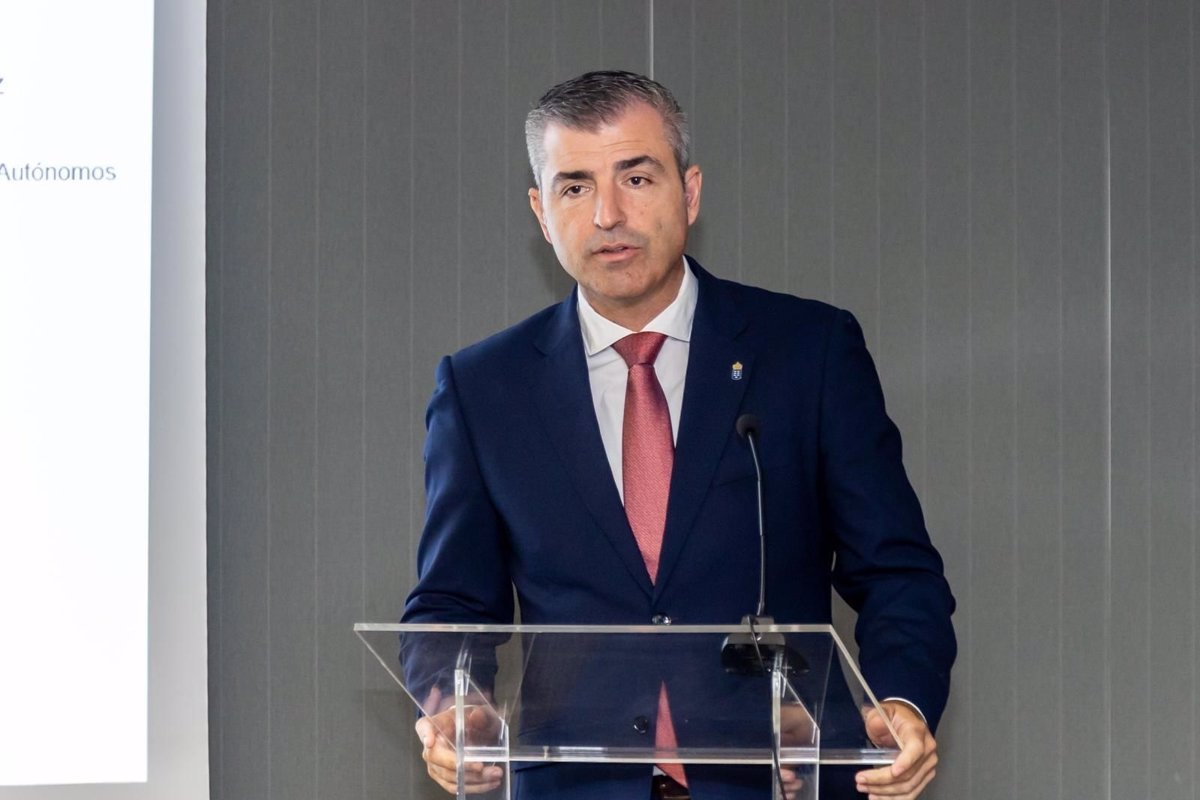
The regional vice president has warned of the possible effects of tariffs on purchasing power and tourism in the islands
The Government of the Canary Islands will now work on identifying «each of the companies» currently trading with the United States in order to propose measures, in a «surgical» manner, aimed at helping them in an «individualized» way with their different needs in the face of the possible impact of tariffs from the United States.
This was announced on Thursday in statements to the media by the regional vice president, Manuel Domínguez, who met this afternoon at the Presidency headquarters in Santa Cruz with companies directly related to the United States and representatives from various sectors, including the Canary Islands Confederation of Entrepreneurs, Chambers of Commerce, Asinca, among others.
«The objective is to identify the Canary companies currently trading with the United States. The trade balance with the United States is deficitary, with 202 million euros in imports and 33 million euros in exports, but we need to emphasize these 33 million euros, which are currently the official data, where we have detected that it is not the correct figure,» explained the vice president.
Additionally, he continued, some of the companies trading with the United States and reflected in this balance, in those 33 million euros, «are not counted as exports and do not pay tariffs», so they should be discounted. Another factor to consider is the detection of some companies that do not appear in the trade balance.
«The export of cheese from the Canary Islands is done to the peninsula, and from there, through the concentration of other products from other parts of the national territory, they are exported to the United States. However, the Canary company is the one that will see its exports reduced in case that tariff increase occurs,» he exemplified.
DETECT AND ADDRESS INDIVIDUALLY
In conclusion, the regional vice president stressed the need to work on identifying «each» of the companies trading with the United States from now on. Once this is achieved, a «surgical» action would be taken, an aid plan that would involve analyzing their specific problems and helping them individually, according to each need.
This approach, he continued, would be supported by the resources and actions that the Spanish government has been able to put on the table in this matter, as well as initiatives driven by the regional government: «Not only to implement, but to take advantage, because they already exist,» he hinted.
He praised the role of the public company Proexca, which «plays a fundamental role» in helping companies find «new markets.» On the other hand, the Directorate General of Economy of the regional government will «strive» to offer «decisive and surgical» assistance.
Regarding entrepreneurs, Domínguez expressed that they have conveyed «concern» about the «uncertainty» generated by the current geopolitical situation. «They see their stock increasing, their customers not consuming because they do not know what will happen with price increases, and therefore, even though that tariff increase has not occurred, some of our companies are being affected,» he said.
«Our desire is for agreements to be reached, for the situation to be clarified once and for all, for that paralysis of tariff increases by Trump not to occur, and for Europe, Spain, the Canary Islands with the United States, to continue maintaining the relationship that has been maintained so far, commercially speaking,» he added.
EFFECTS IN THE ISLANDS: TOURISM AND PURCHASING POWER
Domínguez explained that the focus should not only be on direct exports, but also on the impact that tariffs could have on domestic consumption, on purchasing power in the islands, with the increase in product prices, in other words, inflation.
«Inflation could be one of the worst consequences that this situation could have for the Canary Islands. Why? Because the Canary Islands depend mostly on imports, we import 98% of inputs, we import most of the products we consume, and then, on the other hand, that inflation could affect our main source of income, which is the export of services, in this case tourism,» he said.
Thus, he warned, if the loss of purchasing power in the issuing countries were to occur, due to «that increase in inflation, perhaps «tourism will begin to feel that impact directly and negatively.»






